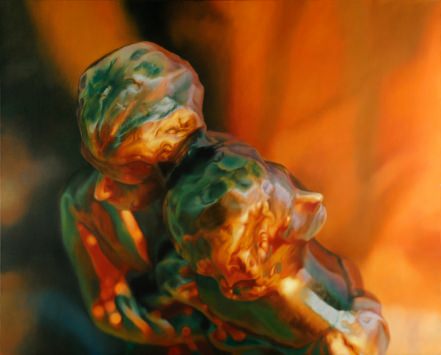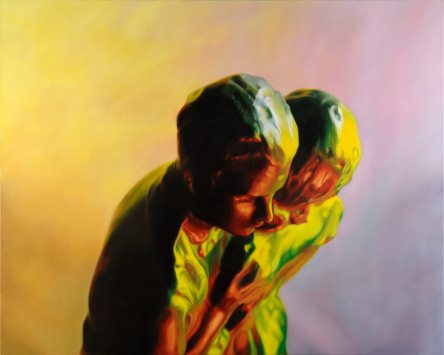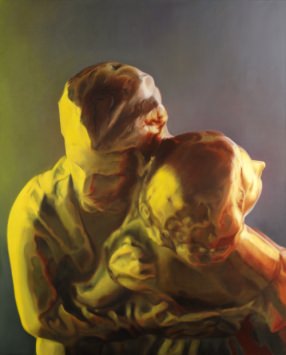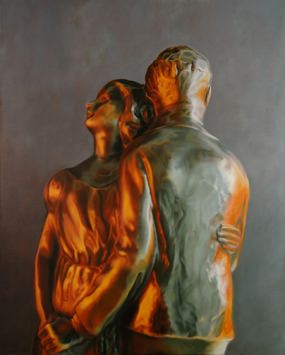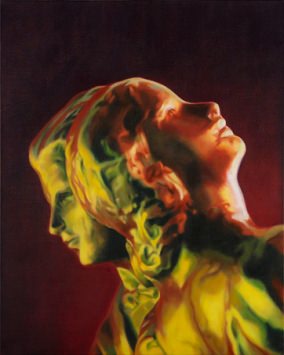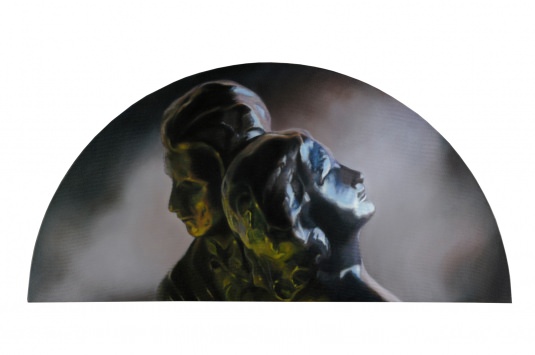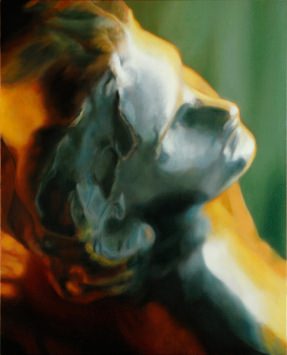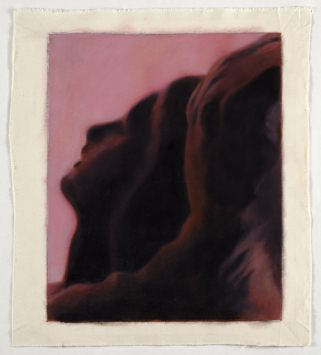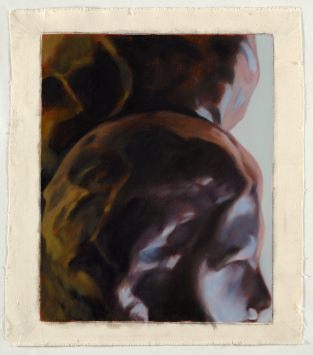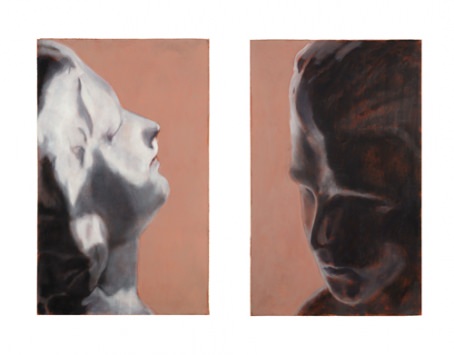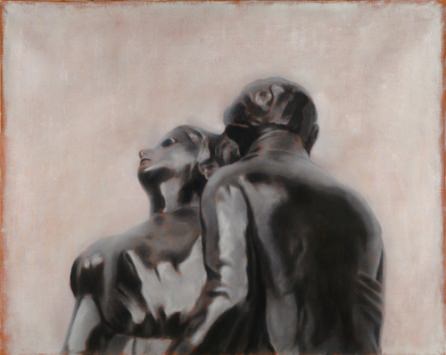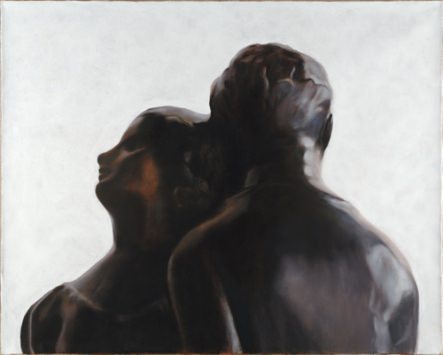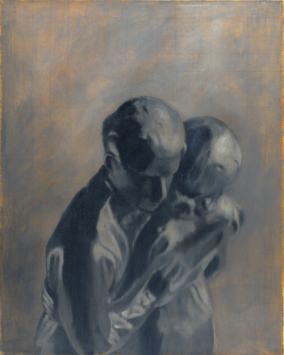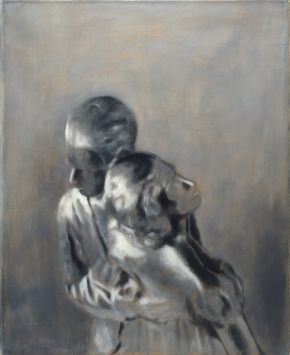Fabrizio Perozzi
Blow Up
Opening: Saturday, November 17, 2012, 4-6 p.m.
The exhibition Blow Up presents a group of paintings in black and white and in colour. The object that served as their genesis is a bronze statuette, cast from an original plaster entitled Débuts and created by the Canadian sculptress É. de Montigny-Giguère (1878-1969).
The writer Yves Navarre, who had the casting done, gave Fabrizio Perozzi one of these statuettes as a gift in the 1990s.
The 1966 Antonioni film, Blow Up—revolving around the themes of photographic enlargement and the enigmatic experience of exploring an image—acted as a catalyst in Perozzi’s process of reflecting on the relationship between representation and reality. The artist has always been fascinated by the ways in which cinema and photography deal with composition, whether in monochrome or in colour.
The black and white canvases, more immediate in their style of execution, are composed as frames in a film sequence. In viewing the large colour canvases we move from one focus of attention to another. The subjects appear to decompose at close range and reconstitute themselves at a distance. The background of these paintings suggests an indefinite time and place.
The figure has always been the primary source Perozzi’s pictorial motifs and it continues to be at the centre of his investigations. In this series, essentially a sequence of still lives, there is no more future that there is past.
Press releaseNews
No news at the moment.

